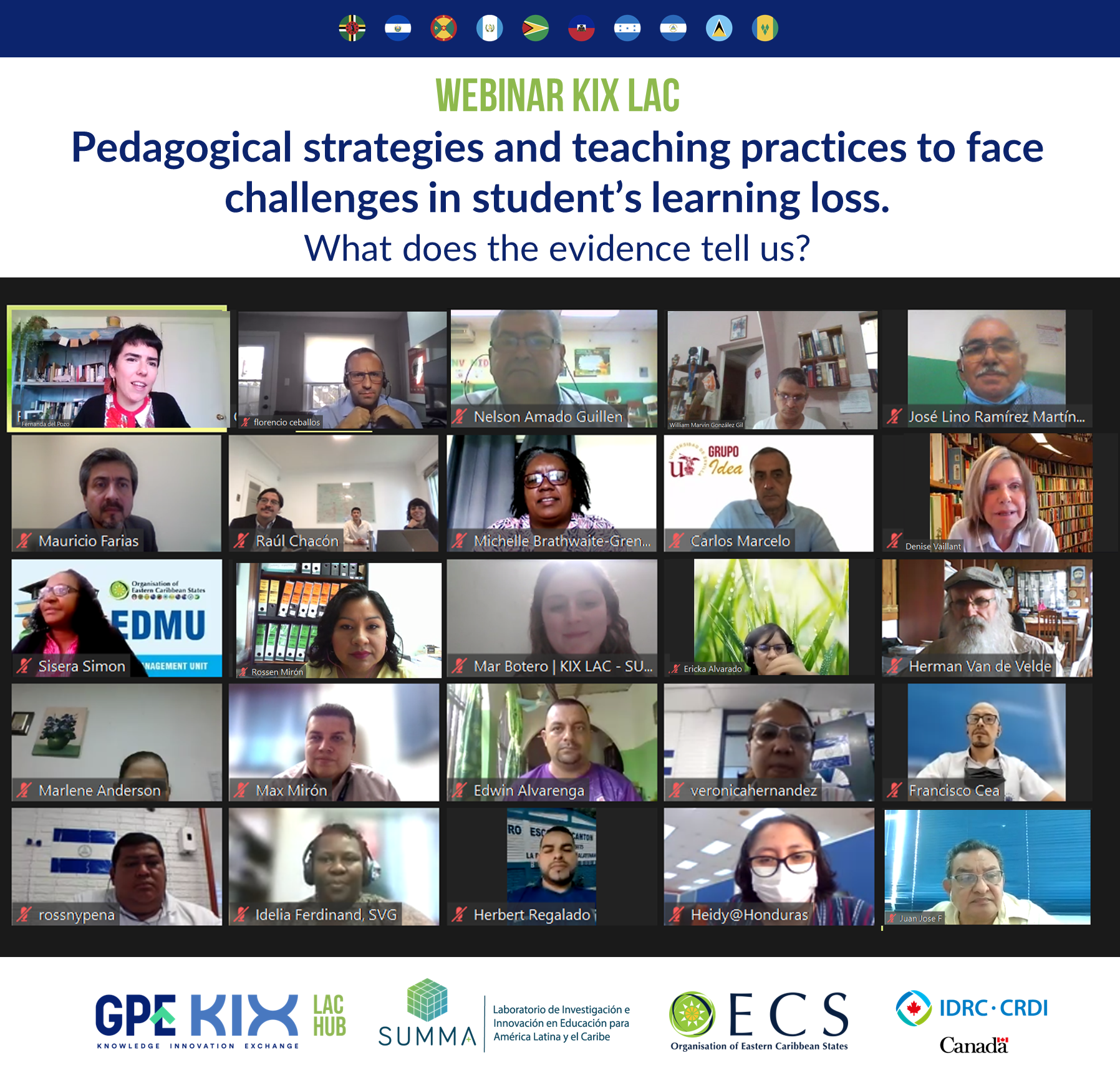
SUMMA and the OECS through the KIX LAC Centre and with the support of the IDRC, organized the webinar “Pedagogical strategies and teaching practices to face challenges in levelling learning: What does the evidence tell us?”, within the framework of the commemoration of International Literacy Day, which brought together representatives from the education sector of the countries that make up the KIX LAC Centre: El Salvador, Grenada, Guatemala, Haiti, Honduras, Nicaragua, Saint Lucia, Saint Vincent and the Grenadines.
Presentations began with the intervention of Dr. Mauricio Farías, director of School Transformation at SUMMA, who presented Regional, National and Local Initiatives to Address the Educational Challenges Produced by the Pandemic, exposing the considerable problems that the educational sector presents: “We really are in a moment of crisis in education. For example, only 39% of Latin American students can read a simple text compared to the global average of 51% and it is in this scenario, that even with limited resources, we need to design effective strategies to deal with these problems”.
Later, in the voice of its authors, Dr. Denise Vaillant, dean of Instituto de Educación and director of the Doctoral Program in Education of Universidad ORT Uruguay; and Dr. Carlos Marcelo, coordinator of the Instituto Interuniversitario Andaluz de Investigación Educativa, presented the research “Learning Recovery Strategies and Effective Practices in Teacher Training”. The report presents a mapping of existing literature on experiences, practices, and programs that have proven to be effective for learning recovery, student levelling, and teacher training, focusing on vulnerable populations and contexts characterized by time and budget constraints.
The report shows in detail the effective practices necessary for teacher training: 1) focus teacher training on what students are expected to learn. 2) analyze student learning. 3) identify teachers’ needs for improvement in relation to student learning problems. 4) consider the school as a background, that is, the real work environment that is within the school. 5) prioritize and promote collaboration. 6) incorporate multiple sources of information. 7) consider the beliefs of teachers. 8) link training to processes of change, and 9) provide ongoing follow-up and support.
Link in English: https://www.youtube.com/watch?v=J4R1f1AXBek
